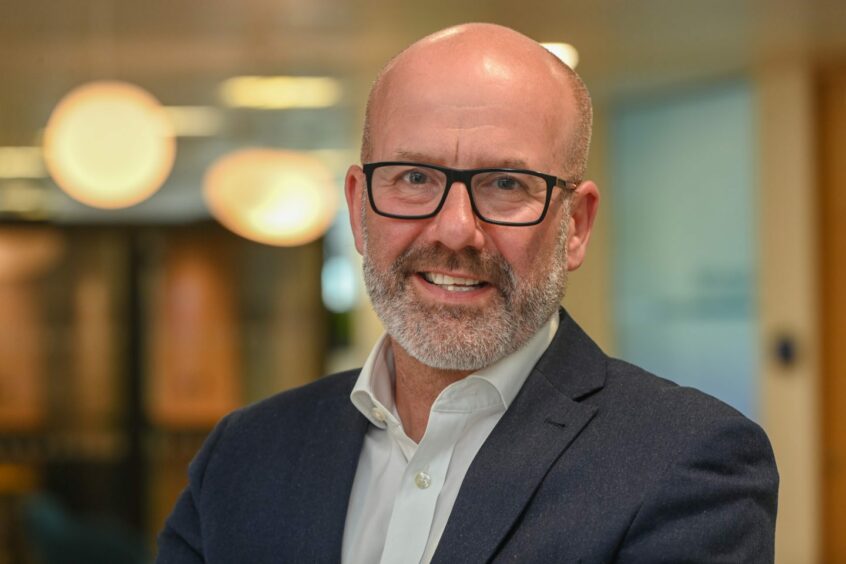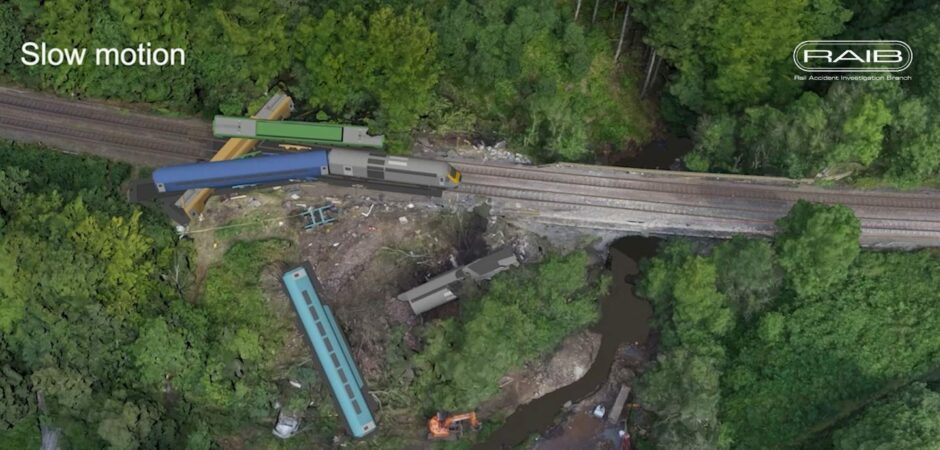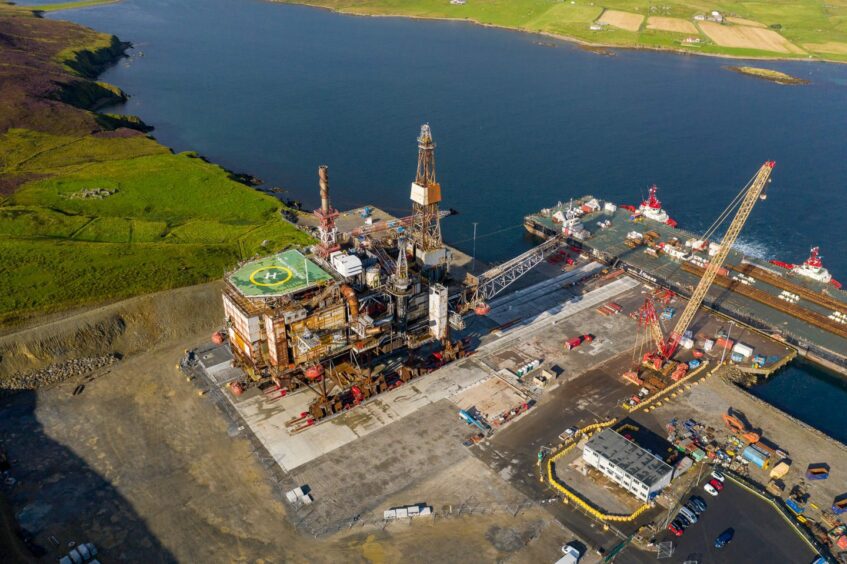
“We’ve got to learn from what others have gone through, but at the same time pass on our own learnings to other industries,” says Offshore Energies UK’s (OEUK) new safety boss Mark Wilson.
Wilson joined as HSE director at the trade body in February, just as it rebranded and widened its remit from “Oil and Gas UK” to cover new energy sectors like offshore wind, carbon capture and storage and hydrogen.
On sharing lessons with those new sectors, he adds: “From a major hazard environment, it’s about taking lessons as far back as Piper Alpha, those 106 (Cullen Inquiry) recommendations going in there.
“I was only reading recently about the horrific train crash that happened at Stonehaven and some of the learnings in there map across to our industry in the same way as well.
“So there’s some common threads running through HSE, some hazards there that really do map across, and making sure that we can learn from each other.”
A “chronic sense of unease” is a familiar phrase for anyone in the offshore safety sector but it’s one that Wilson maps back to his time as a mechanical engineer in the British Army.
“We’re not saying everybody should be walking around hugely concerned, because we are a safe industry, but we should not be a complacent industry.”
He added: “We don’t want another Piper Alpha we don’t want in other industries to go through the extent of having to learn, as we did back in 1988.”
The new OEUK remit means the “threads” of safety cultures from oil and gas and new renewables and low-carbon sectors need to cross over.
For hydrogen, for instance, Wilson says OEUK is connecting with organisations and attending workshops with other groups more frequently and going to conferences further afield.
That said, industry still wants to ensure there is local content for workers in Aberdeen and Aberdeenshire, he adds, amid the transition.
Sharing safety culture extends not just into areas like offshore wind and hydrogen, but other aspects of oil and gas like decommissioning – particularly the highly hazardous onshore decom which still sees serious injuries take place.
“It is critical that we do take the very good HSE culture that we have in the offshore environment and keep it to meet with the onshore environment and maintain it there.
“Just because a plant, for instance, is hydrocarbon free, it does not mean it’s free of hazards that could cause injury.
“So we’ve still got to have the focus on HSE performance and do that all the way all the way to the final point of disuse, i.e., the point where we, in theory, hand it back for recycling, or actually put it into its next phase of operation.”
Safety and Security
Wilson’s arrival at OEUK also took place just a week before Vladmir Putin launched his military invasion of Ukraine, sending global commodity prices spiralling and a scramble to replace oil and gas supplies across Europe.
His remit includes leading the trade body’s resilience support group, focusing on security of supply in relation to Russia’s invasion of Ukraine, as well as ongoing issues around Covid-19 – and knock on issues like delayed maintenance offshore.
Particularly looking back at November of last year, and the intervening months, there’s been a huge shift in the recognition the industry has to play in protecting the country’s security of supply.
“I guess from the language perspective in terms of energy security – supply and security – it had almost disappeared, it was there in the background but it wasn’t front and centre, as relevant, as it is now.”
The British Energy Security Strategy (BESS), published in April, has brought a “wider energy narrative,” he says, linking together the roles of sectors like offshore wind and nuclear.
The strategy underlined the need for North Sea oil and gas production and, even though it is sold onto a global market, Wilson says boosting domestic resource is to the UK’s benefit.
A homegrown supply will boost UK jobs, skills, technology and investment, he says.
“There will of course always be the fact that we are going to be a net importer, but the more that we can generate ourselves means that we’ve got greater control over the commodity, and it’s less globalised.”
Where BESS perhaps finds itself in conflict is the UK Government’s windfall tax imposed on the sector in May, with the uncertainty around potentially deterring investors.
Wilson, formerly of North Sea operator EnQuest, says the UK needs to make sure firms “don’t feel the pull to move away from that UK homegrown market that we want to generate and go elsewhere because the investment is easier and more stable”.
Pandemic to Endemic
Covid-19 of course remains a prevalent issue for the sector – “we’re not fully back to normal yet,” Wilson reports.
But operators now have their own safety procedures firmly in place, so, at a suitable point, OEUK intends to retire the pandemic steering group initially set up to coordinate responses to the pandemic.
“We’ve moved to the ‘endemic’ stage – though it hasn’t been formally called that – moving from that pandemic to an endemic phase where it’s in the general population, operators are now implementing their own controls based upon their own risk perception, their own risk assessment and the regulatory aspects have changed as well to support that.”
Hygiene offshore, such as use of hand gels, is one useful legacy of Covid which Wilson hopes will remain as the winter months approach. Single person cabins is another which the workforce has pointed to.
Reflecting on ending the steering group, he adds: “The key thing is with all of the groups that we set up with as OEUK is once they’ve achieved their outcome is that we don’t rumble it on, we can always reinvigorate it.
“One positive from an offshore perspective, and indeed we do it here, is we would test with cause.
“If you’re feeling ill, you report for medic in the same way if you’re onshore you stay at home.”
Recommended for you


 © Supplied by Rail Accident Invest
© Supplied by Rail Accident Invest © Supplied by Rory Gillies/Shetlan
© Supplied by Rory Gillies/Shetlan